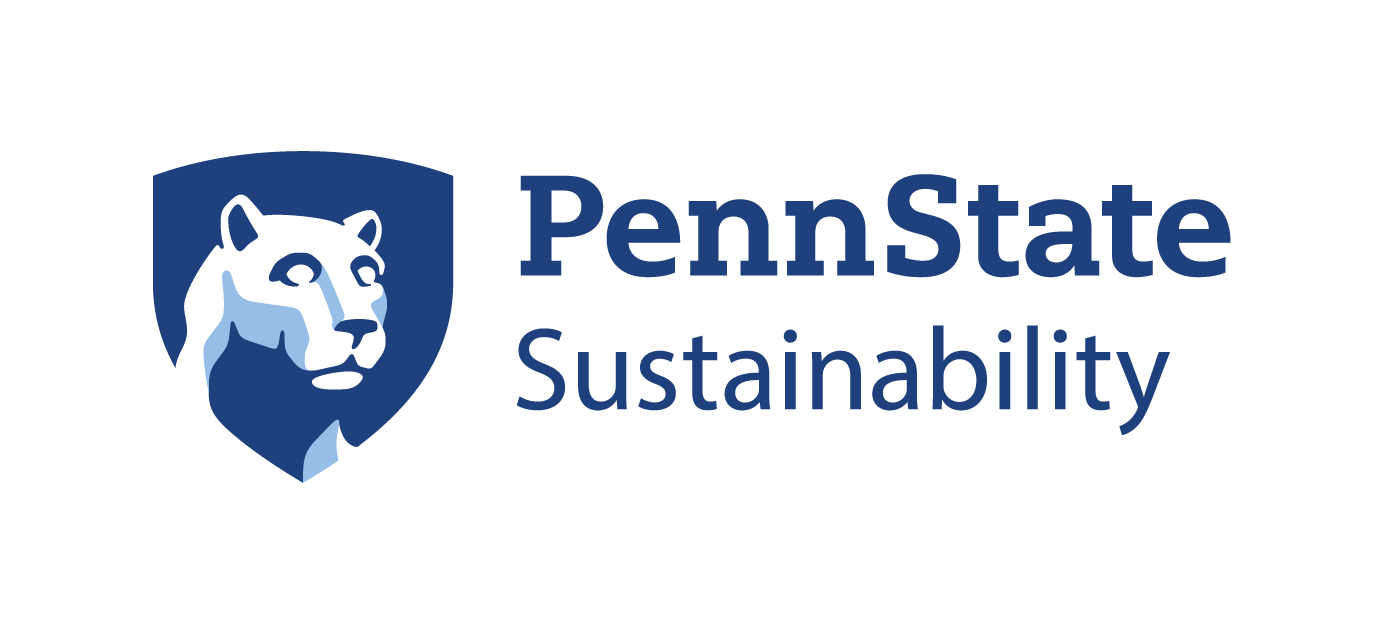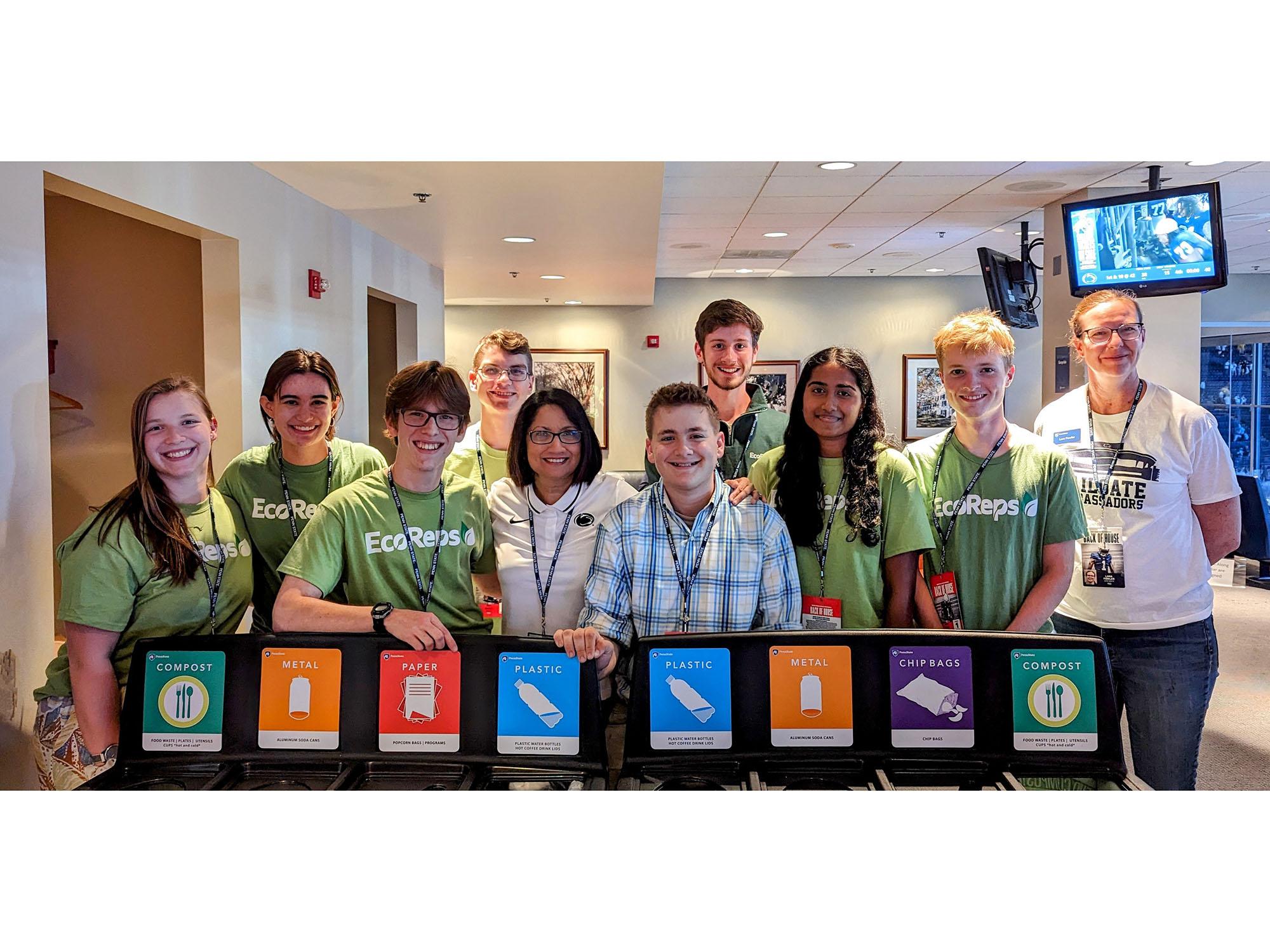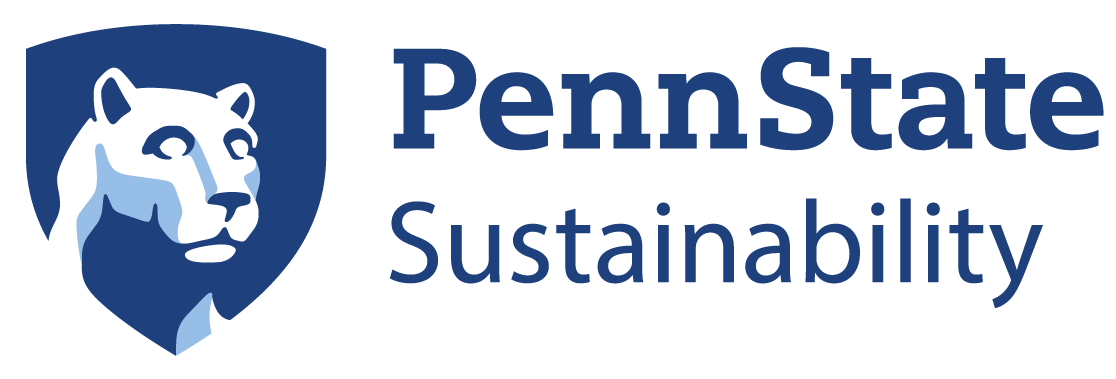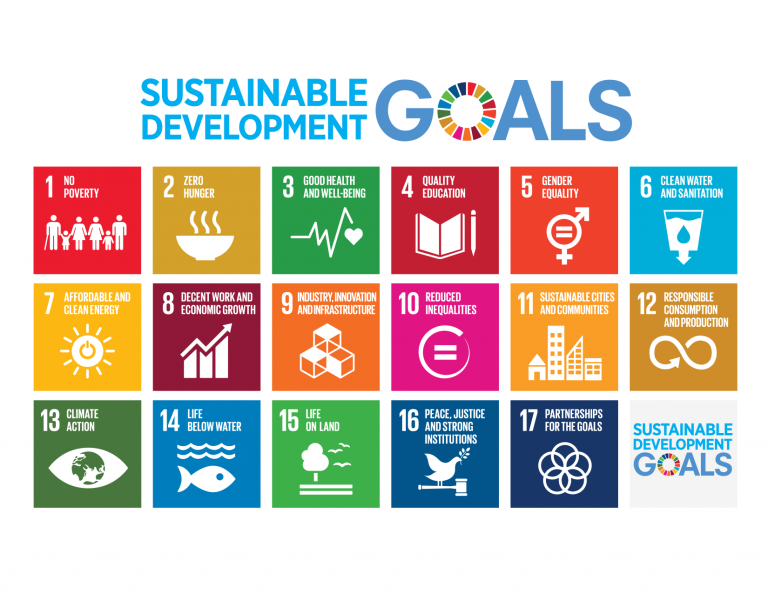There are many definitions of sustainability. In fact, sustainability can mean different things to different people. For many years, the term “sustainability” equated in some people’s minds with environmentalism — people working to protect the planet from pollution, litter, and chemicals while trying to recycle and reduce their overall footprint on the planet.
While the environment is an important facet in sustainability, it is not the only facet.
Penn State sees sustainability as starting with people. The goal of sustainability is to create a holistic approach to human health, economy, and happiness. A stable and clean environment is an important part of that vision, but so, too, are issues like ending poverty, creating dynamic community infrastructure, and guaranteeing gender equity. Only with all of these components can we guarantee a sustainable future for all people.
Penn State has adopted the following as its formal definition of sustainability:
Sustainability is the simultaneous pursuit of human health and happiness, environmental quality, and economic well-being for current and future generations.

United Nations’ Sustainable Development Goals
At Penn State, we are aligning our sustainability efforts with a system of goals that has been agreed upon by the international community, the United Nations’ Sustainable Development Goals (SDGs). The goals are a universal call to action to end poverty, protect the planet, and ensure that all people enjoy peace and prosperity.
The 17 SDGs serve as a guide to tackling the world’s most pressing challenges, including ending poverty and bringing economic prosperity, social inclusion, environmental sustainability, and peace to all countries and peoples by 2030.
Addressing the SDGs will require transformations in how societies and economies function and how we interact with our planet. Education, research, innovation, and leadership will be essential in helping society address these challenges.
How do the SDGs and Penn State connect?
Much of Penn State’s Strategic Plan is aligned with the SDGs. The plan looks to attain these goals by carefully stewarding our natural resources, enhancing health and well-being of our students and communities, digital innovation, and integrating humanities- and arts-based perspectives.
Penn State desires to be a leader in creating transdisciplinary research-based solutions to these challenges.
With twenty-four campuses and traditional strengths in agriculture, engineering, healthcare, arts and humanities, Penn State is poised to implement the SDGs across the entire Commonwealth of Pennsylvania.
Penn State Sustainability’s Role in Advancing Sustainability at Penn State
The employees of Penn State Sustainability support the sustainability movement at Penn State as consultants and coaches who guide and bolster sustainability efforts at the University. Penn State Sustainability has expertise in a number of areas, including student and staff engagement, curriculum development, student-community projects, operations, research, and more. However, for sustainability to grow, the charge of creating sustainability must be adopted by the units and colleges via the establishment of Sustainability Councils at the unit, college and campus level. This way, sustainability grows organically. As it grows, it is nurtured by Penn State Sustainability.

Strategic Plan
Penn State Sustainability’s Strategic Plan for 2021-2025 outlines the process by which SustainPSU and, more broadly, the University will work to meet the needs of the present while enhancing the ability of future generations to meet their own needs (note: the document was written when Penn State Sustainability was still branded as “Sustainability Institute”).
Living Sustainably: Actions Supporting the Sustainable Development Goals
Throughout each of our daily lives, there are many small actions we can utilize to support the Sustainable Development Goals. Penn State Sustainability, in collaboration with WPSU, and many other faculty and staff volunteers, created the following video to illustrate how simple changes can add up to create meaningful positive impact. Enjoy!



